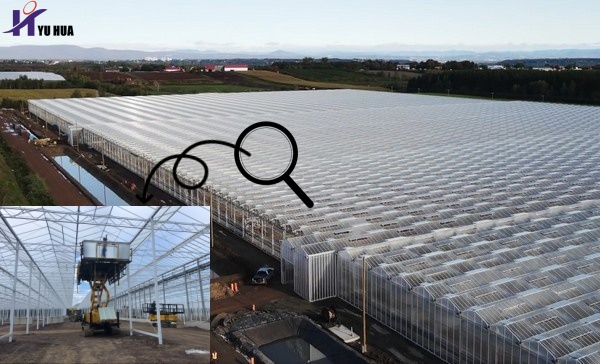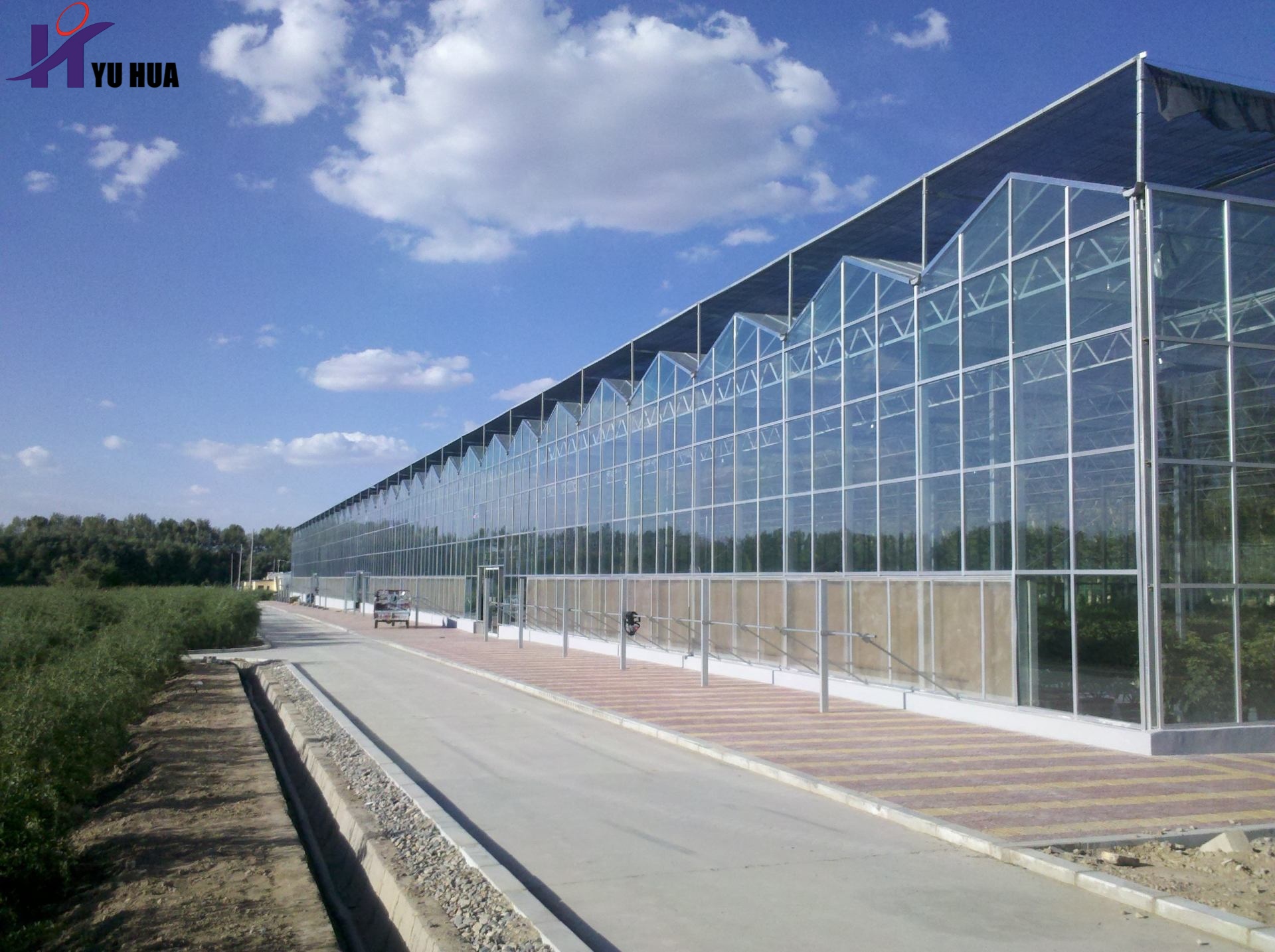
Eight dehumidification methods for glass greenhouses
Glass greenhouse is a greenhouse with glass as the main light-transmitting covering material. It has a long service life and is suitable for different regions and different climates. It is divided into many different greenhouses for growing different plants. Here are eight methods for dehumidifying glass greenhouses.

1. Ventilation
Ventilation is a straightforward and simple concept for glass greenhouse dehumidification, but attention should also be paid to strengthening ventilation in tropical areas, otherwise it will cause the indoor temperature to drop. If the temperature drops too fast during the ventilation process, close the vents in time to prevent the temperature from plummeting and putting the crops in crisis.
2. Proper irrigation
The main factor that causes increased indoor humidity is moisture. The yields in winter and spring can be irrigated by dividing the plants on sunny days, and the plastic film covered with mulching film can be irrigated under the film. The amount of water should be strictly controlled during irrigation to prevent excessive indoor humidity. Wind irrigation should be used after each irrigation, and soil loosening with hoes should be carried out in real time, which can reduce both soil humidity and air humidity.
3. Film coating
The use of film covering can reduce the evaporation of soil moisture and is an important measure to reduce the air humidity in glass greenhouses. The concept of large and thin ridge spacing and double ridges in glass greenhouses where water flows under the plastic film into small ridges may be useful during irrigation. The plastic film hinders the evaporation of water and prevents the air humidity in the shed from increasing significantly after flooding.
4. Heating and cooling
This step can not only meet the temperature requirements of crops, but also reduce the relative humidity of the air. When the plants grow to the point of resistance, the temperature of the closed shed irrigation can be raised to about 30°C, and ventilation can be continued for 1 hour, followed by ventilation and moisture removal. After 3-4 hours, when the humidity is lower than 25℃, it can be repeated once.

5. Use insulation curtain materials with excellent hygroscopicity
Insulation curtain materials with good moisture permeability and hygroscopicity can block internal condensation, reduce air humidity, and prevent dew from falling on plants.
6. Natural moisture absorption
Materials such as straw, wheat straw, and quicklime can be used to absorb water vapor or fog between rows to achieve the purpose of dehumidification.
7. Cultivating and dehumidification
After cutting off the soil capillaries, prevent the capillaries from entering the water surface and prevent excessive evaporation of soil water.
8. Improve light transmittance
Increasing the light transmittance can raise the room temperature. After the room temperature rises, ventilation is often performed to achieve the purpose of dehumidification.
The diffuse glass and AR-coated diffuse glass produced by Yuhua have cooperated with many large commercial greenhouses in agriculture, horticulture, nurseries and experiments. We have cooperated with large greenhouse project companies such as Havecon, Van Der Hoeven, Kubo, etc. for many years. Yuhua greenhouse glass has a light transmittance of up to 99%, and haze 5/10/20/30/50/70/75 greenhouse diffuse glass is available!
Need more detailed information or a solution of greenhouse glass? Need guidance on how to choose the right glass for your greenhouse?
Consult online customer service, leave us a message or send us an email!

Tags:anti-reflective glass diffuse glass agricultural greenhouses glass greenhouse venlo greenhouse AR glass greenhouses glass agricultural glass horticultural glass #greenhouseglass #Antireflectiveglass #Diffusetemperedglass #Ultrawhitefloatglass #agriculturalgreenhouseglass #diffuseglass #horticulturalglass #Tomatogreenhouse #Coloredpeppergreenhouse #Lettucegreenhouse #Agriculturalgreenhouse #ARglass #venlogreenhouse #greenhouseglass #Antireflectiveglass #Diffusetemperedglass #Ultrawhitefloatglass #agriculturalgreenhouseglass #diffuseglass #horticulturalglass #Tomatogreenhouse #Coloredpeppergreenhouse #Lettucegreenhouse #Agriculturalgreenhouse #ARglass #venlogreenhouse #GlassManufacturer #invernadero #ArchitecturalGlass #ClearFloatGlass #FloatGlass
Previous:Ventilation of glass greenhouse
Next:Yuhua successfully completed a large international order



















